Review: J'NAI BRIDGES At Caramoor
Mezzo delivers powerful evening of song highlighting African American composers.
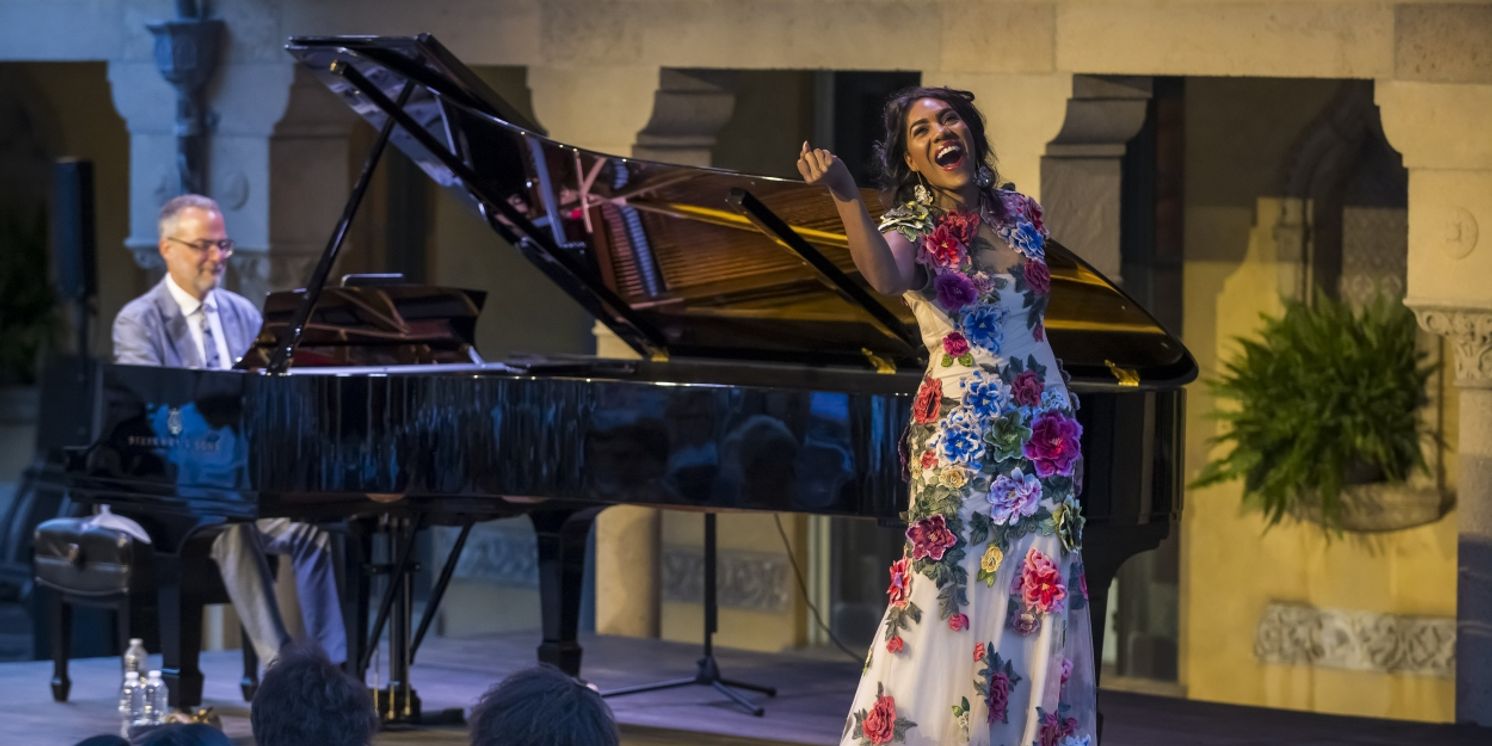
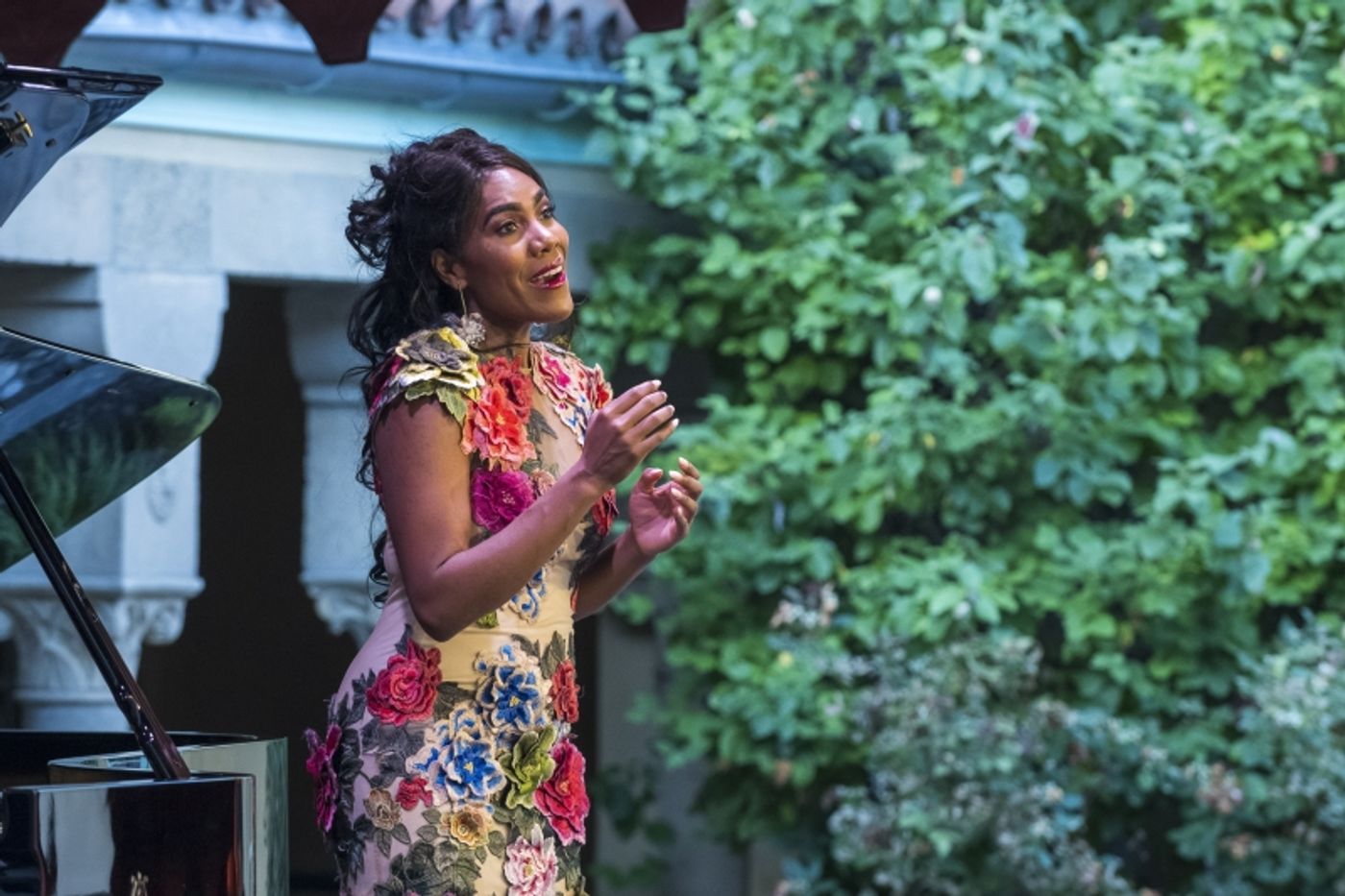
On a spectacularly beautiful evening, in a spectacularly beautiful venue (Caramoor's Spanish Pavillion) the birds were singing brightly, children were running around playfully (some continued to do so right through the recital!) and J'Nai Bridges showed clearly why she is the "it girl" of opera in 2022.
At Ms. Bridges' Carnegie Hall debut a few short years ago, she placed the works of African American composers (particularly living ones) front and center in her program. This was not entirely unexpected in the hallowed hall and given the momentous nature of the performance. That said, at a recital in suburban Westchester, in the more casual and friendly surroundings of Caramoor, where half the audience spent the afternoon picnicking in the bucolic surrounding fields, Ms. Bridges could very easily have chosen a less challenging program of popular favorites. To her credit, she did not. Rather, she challenged her audience to come on a journey with her - a journey that led through more traditional fare (Shubert and Brahms) before focusing securely on the works of modern African American composers. And the audience loved it. All of it!
Albert Hay Malotte's setting of the "Lord's Prayer" has been covered by everyone from Mario Lanza to Andrea Bocelli, but rarely as tenderly and lovingly as by Ms. Bridges. She mentioned in the post-concert talkback that the "Lord's Prayer" always centers her and grounds her. It provided a solid foundation for the rest of the recital.
Ms. Bridges apologized that there were no printed texts for the audience to read along to, and asked master accompanist Bradley Moore to provide brief background on the evening's first four selections. He did so - but there was really no need to. As Ms. Bridges said after the show, the lack of a translation (for people to keep looking down at) kept the focus and the connection more intimate between performer and audience, and this critic completely agrees.
Ravel's "Sheherazade," allowed the singer to show off her sultry side, luxuriating in the language and in Ravel's sensuous phrasing. Ravel's passion for "Oriental Exoticism" is on display right from the first notes of the song cycle, providing the singer an opportunity to show off her natural, physical, interpretive skills as she gradually and gracefully became one with the text.
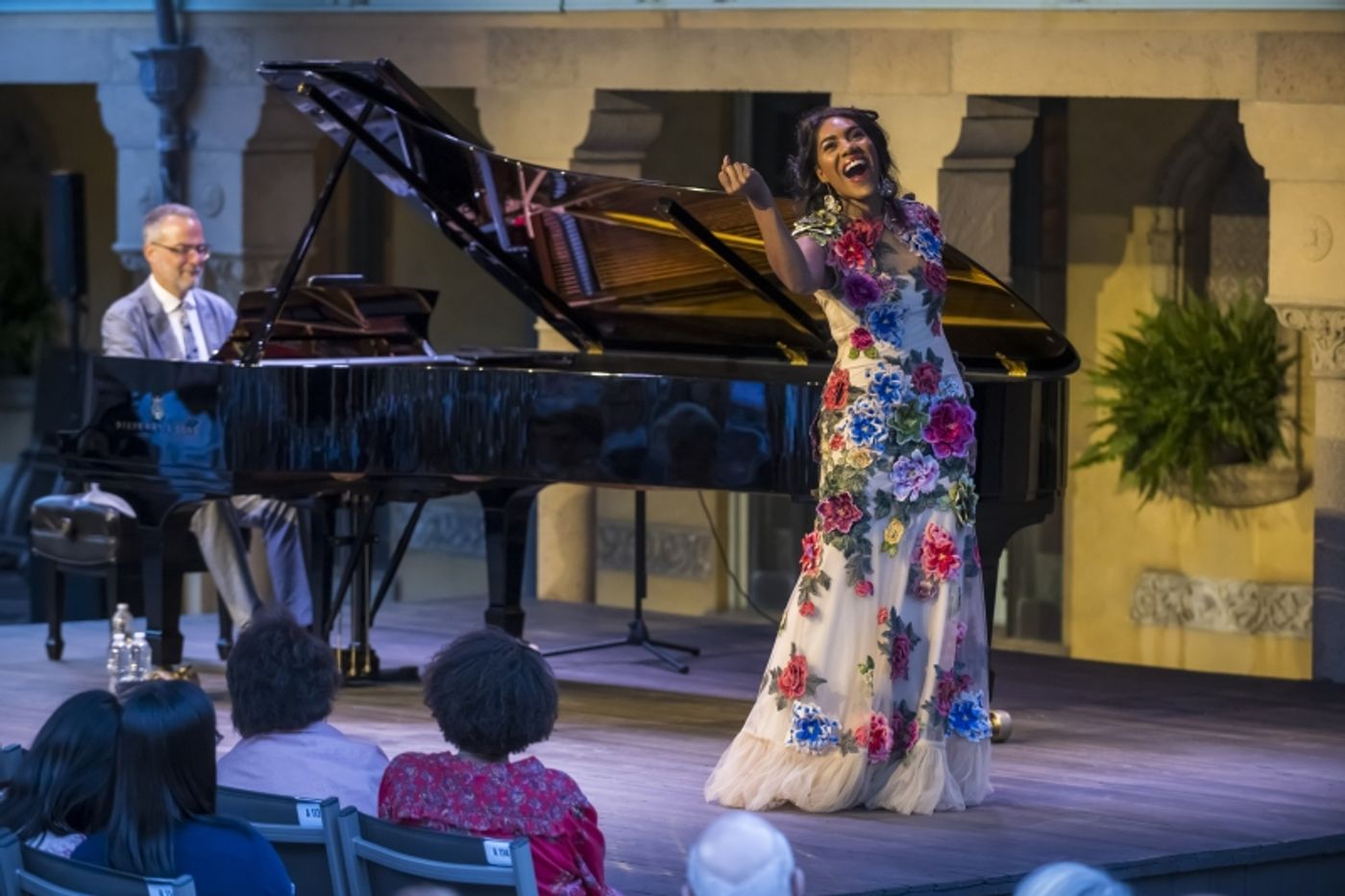
The Ravel was followed by more traditional fare: Schubert's "An Die Music" and Brahms': Die Mainacht and Von Ewiger Liebe. On any other occasion, the German selections might have been the highlights of the evening as they were exquisite, but felt a bit under-powered emotionally, juxtaposed against the exoticism of the Ravel and the passion of the works to follow.
The second half of the program was dedicated to African American composers (primarily living ones) a mission that Ms. Bridges is quite serious about and one that she can be equally proud of. African Americans have contributed enormously to American music over the last century as the creators and originators of most of the truly "American" forms of music: from gospel, jazz, and rhythm and blues to more contemporary fare like rap and hip-hop. But, in the serious concert halls, African American composers not have not been equally represented. There are myriad reasons (too many to go into here) but in 2022, lack of quality material is less and less one of those reasons.
Shawn Okpebholo's "Oh, Glory," which Ms. Bridges world-premiered in 2018, (and which she performs on Dr. Okpebholo's wonderful new album, "LORD, HOW COME ME HERE?") is a masterful "contemporary spiritual." This small masterpiece is blessed with a soaring melody of great lyricism, over dense, but beautifully dissonant harmonic accompaniment, and featuring stirring lyrics suffused, not-quite with optimism, but with great hopefulness. From the first notes, Ms. Bridges held the audience in rapt silence, as her performance raised goosebumps, with one foot firmly rooted in tradition and one looking hopefully forward.
Margaret Bonds' "Minstrel Man," which sets to music text from poet and longtime collaborator, Langston Hughes, is a brief and deceptively dark work - exquisitely matching the subject matter. A bright and cheerful melody plaintively disguises a doleful message; not a Pagliacci sad clown but a sense of world-weary stoicism. Ms. Bridges delicate, elegiac delivery almost conveyed a numbness in the character of the Minstrel Man: "Because my mouth Is wide with laughter You do not hear My inner cry? Because my feet Are gay with dancing You do not know I die?"
The final set of songs was the John Carter "Cantata", an important piece the canon of African American composers. For ages, the texts of spirituals contained themes of hope and joy and the promise of a better world after the suffering in this life. The Cantata takes the lyric and melodies (to a degree) of four well known Spirituals and juxtaposes them against some of the most challenging music imaginable; rhythmically, constantly placing uncommonly strong and weak beats in various meter signatures and harmonically, using different modes throughout each movement, with numerous modal changes throughout. Even when the modal center remains in one key for the duration of the song, the harmonic structure continually challenges the boundaries. Places where the melody is in F pentatonic, and the piano is in D phygryan. This would be a good time to give special kudos to accompanist Bradley Moore who superbly and deftly handled the complex music, and was always in lock step with his singer. Bravo!
The Carter Cantata is not only a difficult piece for singer and accompanist, but it can also be an extremely "un-listener-friendly" experience in the hands of lesser artists that Ms. Bridges and Mr. Moore.
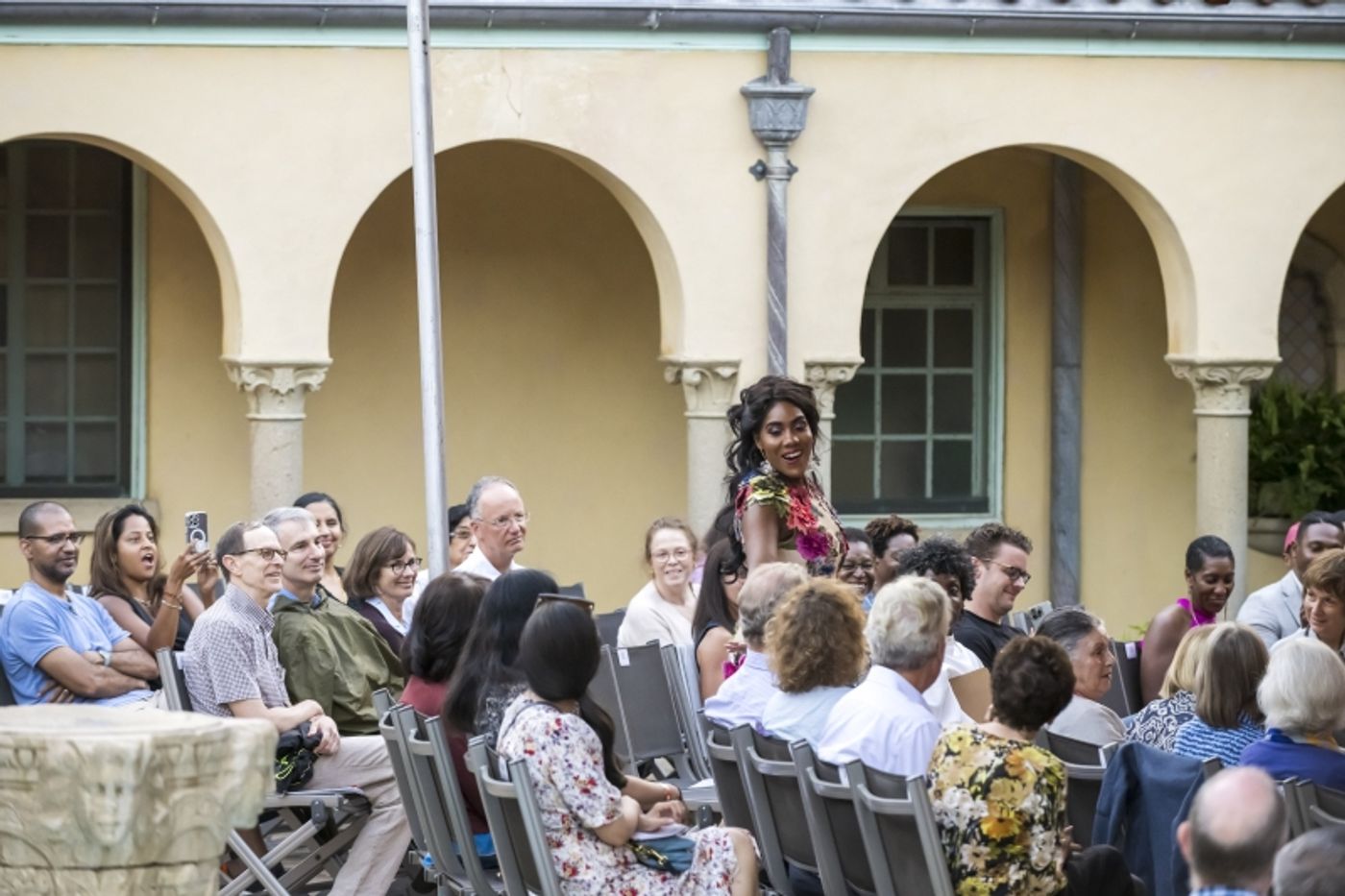
Ms. Bridges connection with her audience was exceptional. She artfully managed the tension of the melodies, their dissonance, their dynamics, and their rhythmic relation to the piano accompaniment.
Ms. Bridges did selections from the Cantata a few seasons ago at her Carnegie Hall debut, but her command of the material has grown and evolved beautifully.
The concert concluded with a traditional encore for virtually every mezzosoprano: the Habanera from Bizet's "Carmen." The audience at it up as Ms. Bridges walked out into the audience and hammed it up in a delightfully flirtatiousness with members of the crowd.
After the show there was a wonderful hour-long talk back hosted by WQXR's Helga Davis. Most of the crowd remained and had a spirited Q&A with the artists.
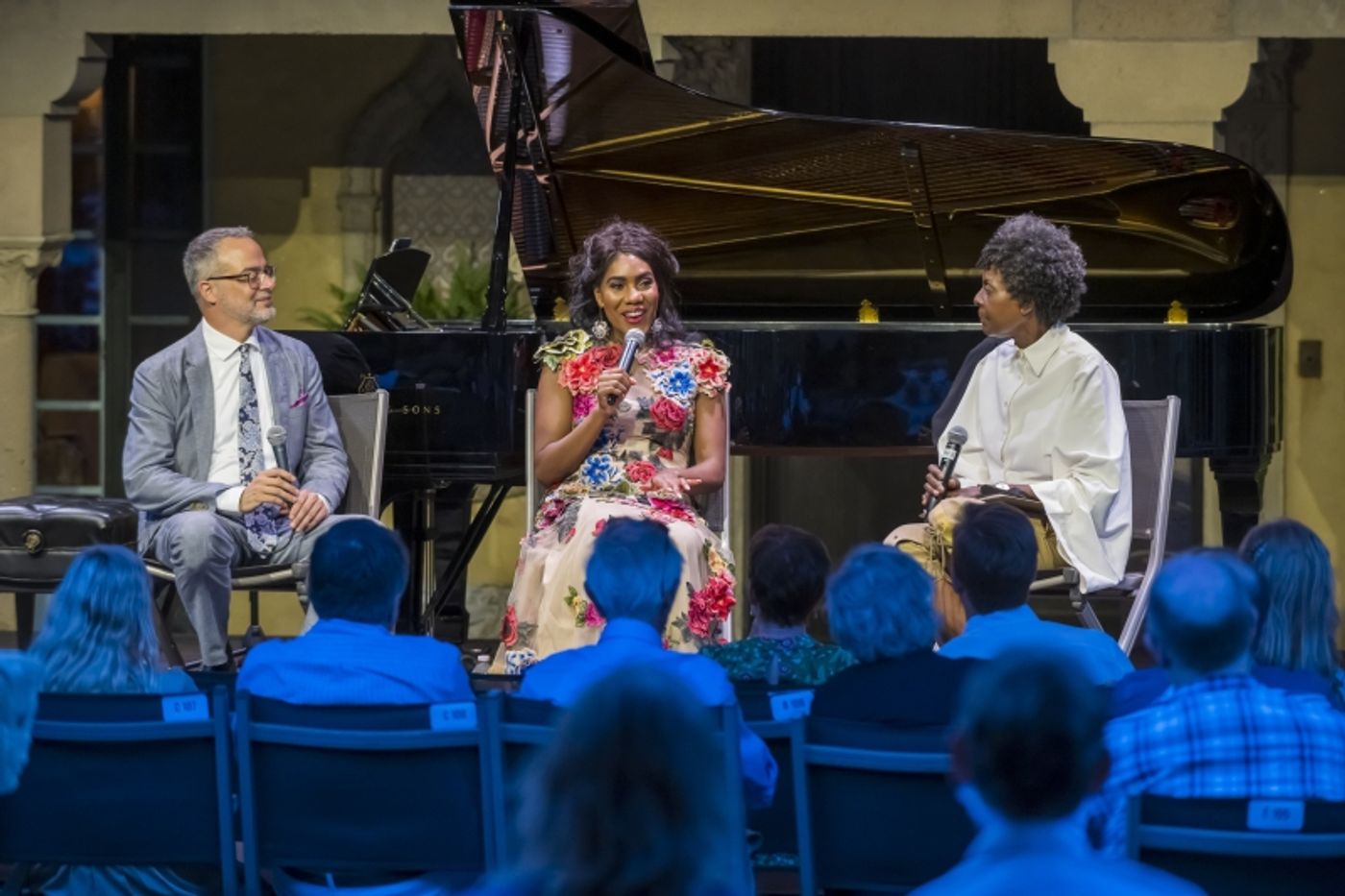
It's encouraging when younger artists champion contemporary music - and even more so when they are championing needlessly neglected works. In New York, for decades (dating back to the dreadful treatment of Mitropoulos by the NY Philharmonic when he tried to program new works by living composers) there has always been the tacit implication that all new music is impossibly "modern" and unenjoyable (i.e. "ugly"). And organizations and artists that champion new works, newer works, living composers, etc., have an agenda of forcing audiences to "eat their vegetables because they are good for you!" Ms. Bridges' recital showed very clearly that it doesn't have to be that way - that interesting music (even difficult and unfamiliar) done at a high level by an engaging artist can be every bit as thrilling and enjoyable as more traditional programming - often even more so!
Reader Reviews
Videos

